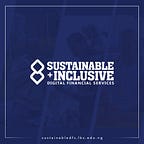Digital currency and financial inclusion
The CBN’s e-Naira plans raise important fairness questions that could worsen financial exclusion if not adequately considered
The Central Bank of Nigeria’s (CBN) staunch opposition to cryptocurrencies was met with mixed feelings. The Securities and Exchange Commission (SEC) had announced protocols for engaging with cryptocurrencies but halted its moves in direct reaction to CBN’s decision and then announced that it would coordinate any further regulatory action in lock step with CBN. The Vice President, Professor Osinbajo, had urged the CBN to seek to understand and regulate cryptocurrencies and to be prepared for the potential seismic innovative changes from cryptocurrencies. Financial innovation and speculation have often in the past resulted in bubbles, Ponzi schemes and financial crises, more so because of the financial illiteracy of the masses whenever they seek to join the speculative boom. Cryptocurrencies may go that way too, therefore, regulatory wariness is understandable. CBN did issue a detailed response on the misgivings expressed, saying inter alia:
“The recent regulatory directive became necessary to protect the financial system and the generality of Nigerians (including the youth population) from the risks inherent in crypto assets transactions… Due to the fact that cryptocurrencies are largely speculative, anonymous and untraceable they are increasingly being used for money laundering, terrorism financing and other criminal activities… [and price volatility increases subscribers’ risks of] loss …” (CBN Circular, PDF).
CBN has now announced plans to launch a digital currency, the e-Naira, initially as a pilot scheme, by October 2021. Digital currency has been defined as: “a new form of money, issued digitally by the central bank and intended to serve as legal tender.” Section 2 of the Central Bank of Nigeria Act, 2007, empowers the Bank to “issue legal tender currency in Nigeria.” This legally empowers CBN issue a digital currency as an official means of payment or fiat money. The current proposal is for CBN to issue e-Naira to the digital ledger of and distribute it through regulated financial institutions, more likely the deposit money banks. These in turn will make them available to customer’s wallet as may be requested.
There are fairness questions whether legal tender ought to be attributed to a means of payment that is not receivable by all citizens, in view of the digital and internet divide that excludes the unbanked poor. There will likely have to be caps on amount of e-Naira that may be held by customers, so as not to exacerbate inequality by creating a closed circle of digital currency elite. This will apparently only be cosmetic, however. If the currency is issued on block chain technology (although it need not be), it should be possible to have accurate transaction trails and to create credit history for the financially excluded. Even if they don’t have accounts they can still receive (welfare money transfer, say) and spend digital currency like cash.
One of the justifications advanced by CBN is an alleged likely positive impact of digital currency on financial inclusion. CBN’s spokesperson said: “…We are about 60 percent [of the financial inclusion target] and at the rate we are going, it is unlikely we would meet this target. But the central bank digital currency would accelerate this target.”
Lofty as this claim sounds, a few questions are pertinent. Firstly, a huge reason for financial exclusion is economic exclusion and lack of financial means or cash to spend. Will introduction of digital currency solve the problem? Secondly, will digital exclusion and non-availability of added services or inclusive products disappear at the stroke of the issuance of e-Naira? Thirdly, will the preference of the poor for cash likely easily and speedily be assuaged by digital currency? Fourthly, will lack of e-identity, another big factor of exclusion, be eradicated automatically by digital currency? Sixthly, high and uncompetitive fees for cash-in, cash-out and other add-on services and lack of trust arising from market misconduct, are well-known barriers. Will digital currency offer a ready panacea? Fifthly, granted that opening a bank account is not equivalent to financial inclusion, will the need to promote introduction of last mile infrastructure, interoperability, inclusive products, effective consumer protection and financial literacy and numeracy soon disappear?
Digital currency may not be the silver bullet that will land us in financial inclusion utopia. However, the well-meaning points of sceptism raised above should be proactively factored into the planning and execution of the digital currency initiative in order to achieve the fond hopes of the CBN for accelerated financial inclusion.
